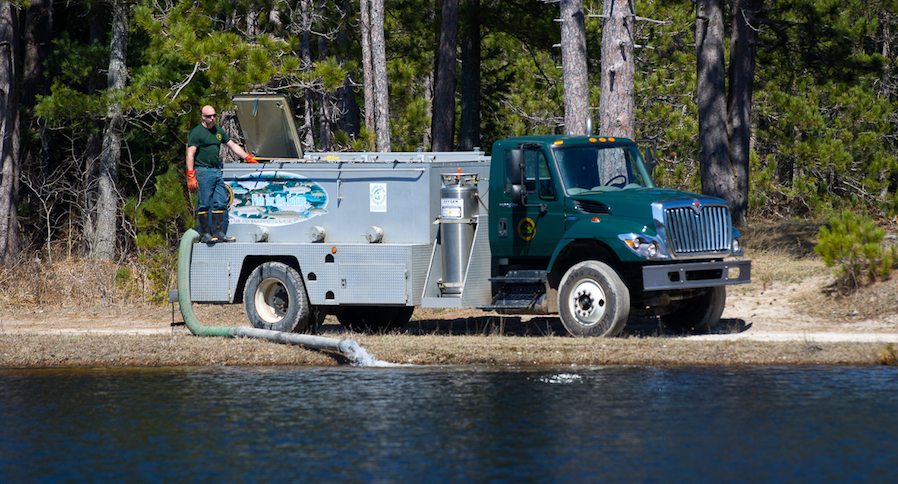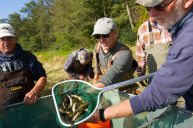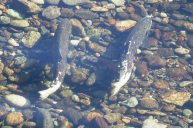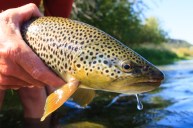In my home state of Michigan, fish stocking is a major part of the Department of Natural Resource's (DNR) management plan.
Every year, the DNR stocks millions of fish of different species in lakes and rivers and streams around the state.
It takes time and effort and resources. Survival rates, meaning fish that live long enough to return to where they were stocked and spawn, is only 5 to 10%.
So, is the effort made to stock fish in natural lakes and rivers and streams worth it? Absolutely.
Check out this video on the operations and educational undertakings at Wolf Lake State Fish Hatchery in Mattawan.
Michigan's stocking efforts have an ecological basis. It started in the late 19th century. At that time, fish were dying off because of pollution, habitat destruction and dam construction.
Not to mention overfishing.
That's when fishery management began in the state, including fish stocking efforts.
Even after more than a century, native fish need support from stocking. Today, invasive species compete with native fish for resources.
Then why stock non-native species, such as salmon, as is popular in Michigan? These fish, too, play a role in helping native species, especially when it comes to the alewife population in the Great Lakes.
In the 1960s and '70s, the native trout populations collapsed. That led to an overabundance of alewives. In a state that relies on beach tourists, rotting alewives were not attractive to swimmers.
Stocking salmon helped control alewives and aided the return of the trout population. Today, the DNR works hard to keep a balance on native fish, non-native fish and food sources through its stocking efforts.
And these efforts aren't simply raising fish and dumping them in the water. This is a scientific effort to raise strong fish and maintain an ecological balance. The following video about the Marquette State Fish Hatchery and its efforts to plant stronger native trout.
Besides the ecological benefits of fish stocking, there is an economic benefit. Recreational fishing in Michigan is a $2.5 billion industry. That includes around 38,000 jobs directly related to fishing.
And about 40% of all of the state's recreational fishing is affected by fish stocking. That jumps to 70% when it comes to salmon and trout.
So, does fish stocking benefit fisheries? Yes.
It supports native fish populations. It helps keep the ecological system in balance. And, of course, it creates opportunities for anglers, which benefits the economy.
The ultimate reason fish stocking efforts are considered successful? Fishing opportunities are preserved for future generations.
NEXT: HAVE YOU HEARD THE ONE ABOUT THE BEAR THAT RAN A 10-MILE RACE IN COLORADO?
https://rumble.com/embed/u7gve.v3tsf1/




